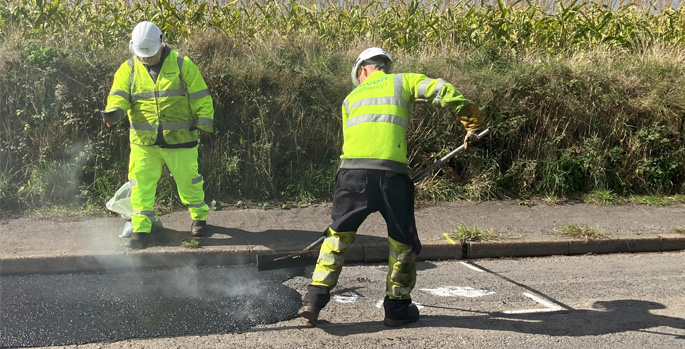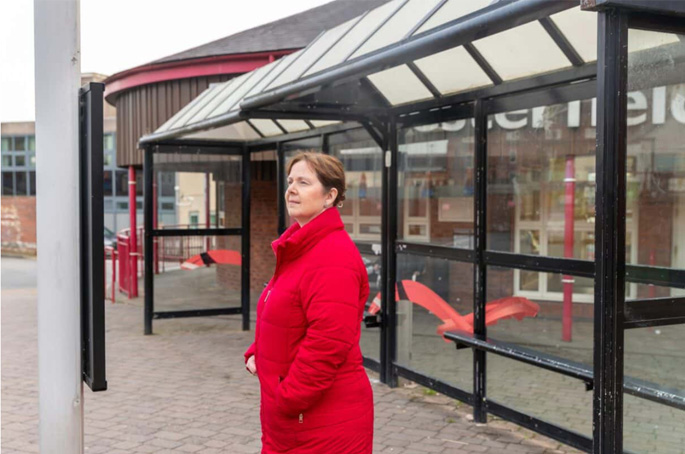Highways deputy editor George Barker speaks to Devon County Council's traffic management group lead, Alex Crump, as the county's seven-week ‘pothole blitz' kicks off.
Mr Crump is quick to highlight that this trial is not 'find and fix', it is focused on providing an enhanced service.
‘Our approach in Devon,' he explains, ‘is that when we get a public report of a pothole, we always want a highway safety inspector to go and visit that to triage it rather than sending a repair team straight there.
‘The real differences here,' he adds, ‘are that the inspectors are being asked when they go and triage public reports to pick up everything within 500 metres in each direction of that public report, or to the nearest junction, whichever is closest.
‘There is obviously the risk that the inspectors don't pick something up and then the repair teams go back and something else has formed, so we're also saying to the repair team: when you get to site, if there's anything within your traffic management set up that the inspector's not already identified, you're empowered to action or repair on that.'
One aspect that is providing a challenge for this new approach is the number of rural roads in Devon.
‘In somewhere like Devon,' Mr Crump says, ‘a significant proportion of our roads are unclassified. They're evolved roads that started as pebbles and over time have become heavily used.'
Due to this, this trial is focused specifically on two areas – Barnstaple and Hatherleigh and Chagford – that cover both urban and rural areas so that the teams can examine how difficult the ‘blitz' approach is in these different environments.
The motivation for this change in approach, Mr Crump states comes directly from the recently elected cabinet member for highways, Cllr Dan Thomas.
Citing a repair backlog of around £390m, Cllr Thomas says that by trialling this new approach to dealing with potholes, the goal is to establish what the cost implications are and how effective this approach would be on the lower category roads in the county.
He also notes that the entire department is ‘acutely aware' that it is not able to do the things the public wants ‘as quickly as we would like'.
When it comes to assessing the success of this trial, Mr Crump says that the council will be taking a ‘data-led approach'.
‘We'll be looking at things like the spend data and how that varies in these two trial locations. We'll be looking at the number of safety defects and non-safety defects that we're repairing. We'll be looking at how it impacts the number of public reports we've got coming in.'
The main focus is to assess the council's capacity to maintain the ‘enhanced service level' and whether it's reasonable or practicable to expand across the county, and whether the council can continue to repair non-safety defects at the same time.
Mr Crump adds: ‘There are obviously legal considerations as well. If we're repairing those non-safety serviceability bits, we need to make sure we're still prioritising the safety defects and the liability associated with those. So, all those elements of data will be fed in.'
There already appears to have been some early success. Speaking at the end of the first day, Mr Crump tells Highways that ‘even though we've got a yellow weather warning, even though the trial only started today, inspectors have already identified extra work and the repair teams are picking that up from today'.
Mr Crump concludes that it will ultimately be a matter for the administration to decide whether to expand the trial across the county.
The trial began on 15 September and is set to run for seven weeks until the end of October.































